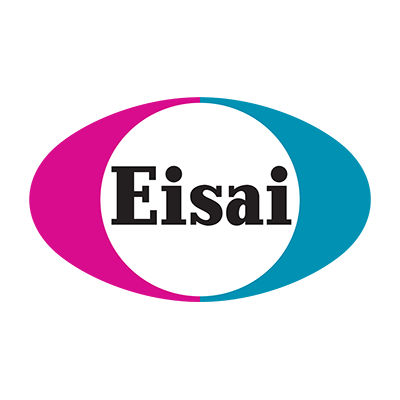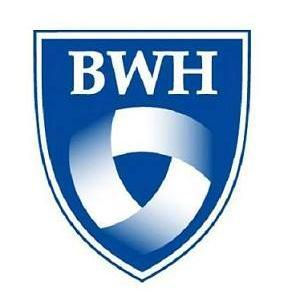Request Demo
Last update 08 May 2025
Anastomotic ulcer
Last update 08 May 2025
Basic Info
Synonyms ANASTOMOTIC ULCER, Anastomotic ulcer, Anastomotic ulcer, NOS + [3] |
Introduction- |
Related
12
Drugs associated with Anastomotic ulcerTarget |
Mechanism Proton pump inhibitors |
Originator Org. |
Active Indication |
Inactive Indication- |
Drug Highest PhaseApproved |
First Approval Ctry. / Loc. China |
First Approval Date30 Sep 2022 |
Target |
Mechanism Proton pump inhibitors |
Active Org. |
Originator Org. |
Active Indication |
Inactive Indication |
Drug Highest PhaseApproved |
First Approval Ctry. / Loc. Austria [+15] |
First Approval Date07 Dec 2000 |
Target |
Mechanism Proton pump inhibitors |
Originator Org. |
Active Indication |
Inactive Indication |
Drug Highest PhaseApproved |
First Approval Ctry. / Loc. Japan |
First Approval Date14 Oct 1997 |
78
Clinical Trials associated with Anastomotic ulcerNCT06543316
Accelerated Marginal Ulcer Healing With Low-Thermal Argon Plasma Endoscopic Treatment
The objective of the study is to investigate the treatment of marginal ulcers with Low Thermal plasma in an endoscopic setting. By a treatment of the ulcerated areas with argon plasma with low power settings (
1 W) we hypothesize that the size of the ulcers will shrink, and the healing is accelerated compared to standard of care alone. Patients will benefit from this minimally invasive approach compared to a much more invasive surgical approach that comes with higher risks and hospital stay length time. From a societal and scientific perspective, this study aims to extend the well-documented clinical benefits of plasma technology - from external wound healing to internal ulcer treatment - within an endoscopic framework. The success of this study could pave the way for broader applications of LTP in the treatment of other endoscopically accessible conditions such as peptic ulcers, duodenal ulcers and esophageal ulcers. This advancement has the potential not only to improve patient outcomes through less invasive methods, but also to position LTP as a cornerstone in the future of gastroenterological wound management strategies.
1 W) we hypothesize that the size of the ulcers will shrink, and the healing is accelerated compared to standard of care alone. Patients will benefit from this minimally invasive approach compared to a much more invasive surgical approach that comes with higher risks and hospital stay length time. From a societal and scientific perspective, this study aims to extend the well-documented clinical benefits of plasma technology - from external wound healing to internal ulcer treatment - within an endoscopic framework. The success of this study could pave the way for broader applications of LTP in the treatment of other endoscopically accessible conditions such as peptic ulcers, duodenal ulcers and esophageal ulcers. This advancement has the potential not only to improve patient outcomes through less invasive methods, but also to position LTP as a cornerstone in the future of gastroenterological wound management strategies.
Start Date01 Feb 2025 |
Sponsor / Collaborator |
CTR20244553
评估受试制剂奥美拉唑肠溶片(规格:20 mg)与参比制剂奥美拉唑肠溶片(Omepral®,规格:20 mg)在健康成年参与者餐后状态下的生物等效性试验
[Translation] A study to evaluate the bioequivalence of the test product, omeprazole enteric-coated tablets (strength: 20 mg), and the reference product, omeprazole enteric-coated tablets (Omepral®, strength: 20 mg), in healthy adult participants in the fed state
主要目的:研究餐后状态下单次口服受试制剂奥美拉唑肠溶片(规格:20 mg,浙江京新药业股份有限公司生产)与参比制剂奥美拉唑肠溶片(Omepral®,规格:20 mg,太陽ファルマ株式会社持证)在健康成年参与者体内的药代动力学,评价两种制剂是否具有生物等效性。
次要目的:研究受试制剂奥美拉唑肠溶片(规格:20 mg)和参比制剂奥美拉唑肠溶片(Omepral®,规格:20 mg)在健康成年参与者中的安全性。
[Translation]
Main purpose: To study the difference between the test preparation Omeprazole Enteric-coated Tablets (specification: 20 mg, produced by Zhejiang Jingxin Pharmaceutical Co., Ltd.) and the reference preparation Omeprazole Enteric-coated Tablets (Omepral) in a single oral administration after a meal. ®, strength: 20 mg, licensed by Taiyo Fumira Co., Ltd.) in healthy adult participants to evaluate whether the two preparations are bioequivalent.
Secondary purpose: To study the safety of the test preparation omeprazole enteric-coated tablets (strength: 20 mg) and the reference preparation omeprazole enteric-coated tablets (Omepral®, strength: 20 mg) in healthy adult participants .
Start Date28 Dec 2024 |
Sponsor / Collaborator |
CTR20243909
兰索拉唑碳酸氢钠干混悬剂(30mg/1680mg)在中国健康成人中单次和多次给药的药代动力学、药效动力学以及食物影响试验
[Translation] Pharmacokinetics, pharmacodynamics and food effect studies of single and multiple doses of lansoprazole sodium bicarbonate suspension (30 mg/1680 mg) in healthy Chinese adults
以健康受试者为试验对象,兰索拉唑碳酸氢钠干混悬剂(30mg/1680mg)为受试制剂,兰索拉唑碳酸氢钠胶囊(30mg/1100mg)为参比制剂,采用单次和多次给药试验设计,进行两制剂药代动力学、药效动力学比较试验以及食物对受试制剂PK参数影响试验:
1. 比较单次和多次给药后受试制剂和参比制剂药代动力学参数;
2. 比较单次和多次给药后受试制剂和参比制剂药效动力学参数;
3. 评价食物对受试制剂药代动力学参数的影响;
4. 观察受试制剂和参比制剂在中国健康受试者中的安全性。
[Translation]
Healthy subjects were used as test subjects, lansoprazole sodium bicarbonate dry suspension (30mg/1680mg) was used as the test preparation, and lansoprazole sodium bicarbonate capsule (30mg/1100mg) was used as the reference preparation. Single and multiple dosing test designs were used to conduct pharmacokinetic and pharmacodynamic comparison tests of the two preparations and the effect of food on the PK parameters of the test preparation:
1. Compare the pharmacokinetic parameters of the test preparation and the reference preparation after single and multiple dosing;
2. Compare the pharmacodynamic parameters of the test preparation and the reference preparation after single and multiple dosing;
3. Evaluate the effect of food on the pharmacokinetic parameters of the test preparation;
4. Observe the safety of the test preparation and the reference preparation in healthy Chinese subjects.
Start Date28 Oct 2024 |
Sponsor / Collaborator |
100 Clinical Results associated with Anastomotic ulcer
Login to view more data
100 Translational Medicine associated with Anastomotic ulcer
Login to view more data
0 Patents (Medical) associated with Anastomotic ulcer
Login to view more data
537
Literatures (Medical) associated with Anastomotic ulcer01 Apr 2025·DEN Open
A case of gastrolithiasis produced by a 5‐day diet
Article
Author: Tanaka, Hironiri ; Sasaki, Shun ; Ota, Kazuhiro ; Nishikawa, Hiroki ; Iwatsubo, Taro ; Sugawara, Noriaki ; Takayama, Kazuki ; Mori, Yosuke ; Hakoda, Akitoshi
01 Apr 2025·Digestive and Liver Disease
Ischemic ulcers do not significantly impact endoscopic recurrence score in Crohn's disease: A multicenter comparative study after right-side colectomy
Article
Author: Calabrese, Giulio ; Imperatore, Nicola ; Testa, Anna ; Calderone, Silvia ; De Palma, Giovanni Domenico ; Castiglione, Fabiana ; Orlando, Ambrogio ; Toro, Benedetta ; Guarino, Alessia Dalila ; Fichera, Alessandro ; Nardone, Olga Maria ; Rispo, Antonio ; Tropeano, Francesca Paola ; Lamanda, Roberto ; Di Girolamo, Elena ; Solina, Gaspare ; Delrio, Paolo ; Luglio, Gaetano ; Cricrì, Michele ; Marone, Pietro
01 Feb 2025·Obesity Surgery
More Anastomotic Ulcers, Less Dumping, and Equal Weight Loss in Long vs. Short Gastric Pouch in Laparoscopic Roux-en-Y Gastric Bypass
Article
Author: Süsstrunk, Julian ; Bühler, Gaby ; Kraljević, Marko ; Fourie, Lana ; Peterli, Ralph ; Schneider, Romano ; Woellnerhanssen, Bettina
Analysis
Perform a panoramic analysis of this field.
login
or

AI Agents Built for Biopharma Breakthroughs
Accelerate discovery. Empower decisions. Transform outcomes.
Get started for free today!
Accelerate Strategic R&D decision making with Synapse, PatSnap’s AI-powered Connected Innovation Intelligence Platform Built for Life Sciences Professionals.
Start your data trial now!
Synapse data is also accessible to external entities via APIs or data packages. Empower better decisions with the latest in pharmaceutical intelligence.
Bio
Bio Sequences Search & Analysis
Sign up for free
Chemical
Chemical Structures Search & Analysis
Sign up for free







